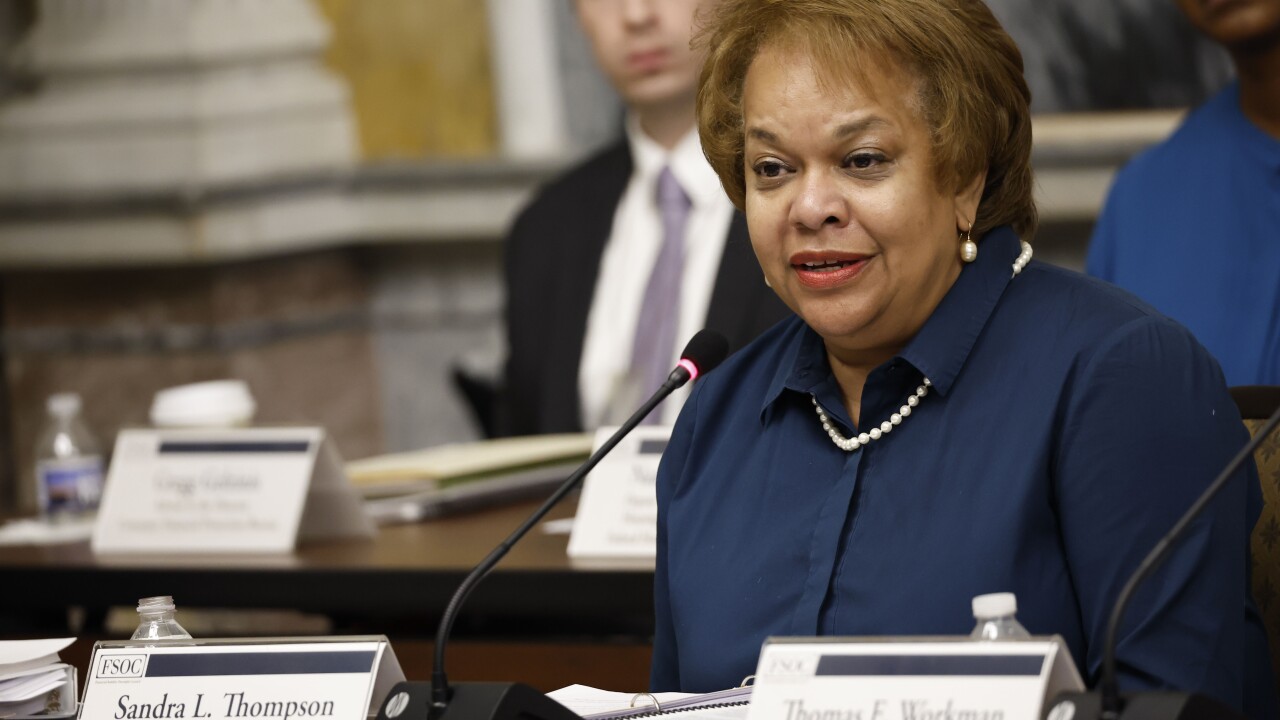
Mortgage brokers should have the wind at their backs this year if the purchase mortgage market really comes alive in 2014.
The adjustment to the qualified mortgage rule should be completed in the first quarter and it’s expected to go relatively smoothly. A lot of banks have exited the wholesale space but more nonbank lenders have taken their place.
“The market seems to think it is going to work because nonbanks are expanding into wholesale as more and more of the banks exit the business,” says Donald Lampe, a partner at the law firm of Morrison Foerster in Washington.
Brokers are finding there are plenty of wholesalers ready to fund their loans. And their compensation may be better than they expected just a few months ago.
At first it appeared the
But higher mortgage rates allow the wholesalers to finance most of the loan fees into the interest rate. So there's room to increase the brokers' compensation.
“We are moving into a purchase market,” according to 360 Mortgage Group vice president Al Crisanty, when brokers become more relevant and their share of originations can increase dramatically.
“I think there is a huge opportunity for that to happen over the next six to 12 months,” says the VP for national wholesale production. 360 Mortgage is based in Austin, Texas.
But some brokers are concerned underwriting standards will remain tight under the QM rule.
“There is plenty of funding available for mortgage brokers,” says Brian Benjamin, whose brokerage firm, Two River Mortgage, is based in Red Bank, N.J.
“I have a lot of wholesale companies coming in here,” he says. But he is concerned about the underwriting standards. Some lenders don't want loans if the borrower's debt-to-income ratio exceeds 41%.
“There are top-flight borrowers but they can't qualify for the loan programs that are available,” he says.
Brokers are also concerned that the double counting of their compensation under the QM will make it more risky to originate low-balance loans. The brokers’ compensation is counted toward the cap on points and fees and it is counted in the interest rate on the loan.
That increases the cost of the loans and brokers have to be careful they don't bump up against the triggers of the Home Ownership and Equity Protection Act.
A QM loan loses its “safe harbor” protection from litigation if the interest rate exceeds a certain limit.
For some small loans, a bank can do it as a QM loan. But it would be a non-QM loan for a broker, according to Bill Kidwell, a Denver mortgage broker who also advises fellow brokers on regulatory compliance matters. “That means consumer choice is going to be limited,” Kidwell says.
At 360 Mortgage Group, Crisanty noted the Consumer Financial Protection Bureau raised the 3% cap on broker compensation to provide an incentive for small-balance loans of up to $100,000.
“There will be ongoing discussion about that. The last thing the CFPB wants is to exclude those borrowers who need financing and leave them out in the cold,” he says.
The VP for national wholesale production expects a lot of the remaining QM issues will be cleared up in the next 30 to 90 days. And the QM rule is not going to have a huge impact after all.
“I think that will be less of a factor or issue for the brokers or for anybody than was first thought,” Crisanty says.
The QM rule officially goes into effect Jan. 10.





